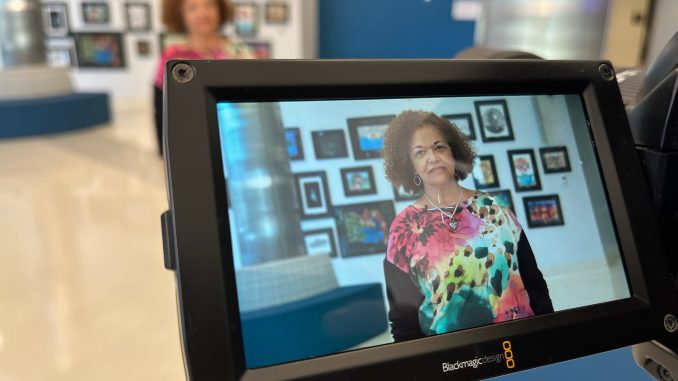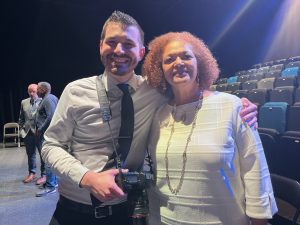
The message behind St. Charles Parish Public Schools’ documentary Trailblazers is a powerful one that resonates – and it’s also earned some serious recognition.
The film premiered to a standing room only audience in November of 2022 and almost a year later it’s officially been nominated for a regional Emmy. Trailblazers was selected as a nominee by the National Academy of Television Arts & Sciences (NATAS)
The NATAS award criteria places the documentary as a regional nominee due to the local focus/content of the video. The regional awards program is coordinated by the Suncoast Chapter of the NATAS and covers Alabama, Florida, Georgia, Louisiana, and Puerto Rico.
The video produced by Mason Dauphin is one of 10 nominees in the “Documentary Historical” category, and the winner will be announced on December 2 at a ceremony in Hollywood, Florida.
St. Charles Parish public schools would be completely desegregated by the end of the 1960s, but while plans and preparations by the school district were made throughout the decade to make that a reality, a group of students had to have the bravery to be among the first to cross the color barrier.

Trailblazers spotlights the desegregation of St. Charles’ public schools in 1965 and specifically highlights the former students who volunteered to be the first to integrate in the midst of the Civil Rights Movement. The film includes interviews with a number of those students as well as school employees of the time.
The documentary is available for viewing at https://youtu.be/xKausU63AwU.
Ulysses Frontha, a former Destrehan High School student and teacher, approached School Board Member Ellis Alexander several years ago with the idea of recognizing the first African-American students who volunteered to attend previously all-white schools in St. Charles Parish, as many local individuals had no idea of the history of African American students in regards to local education.
Alexander requested a school system committee to be formed to develop plans for a celebration, but the celebration was delayed by several years due to Covid and Hurricane Ida. The committee determined a video was needed to be able to tell the stories of these students – a documentary which current and future students and the general public would be able to view and learn from regarding the school system’s past and how it has led the system to where it is today.
Dauphin took on the production of the film and noted that it was initially intended to be a smaller project than it was.
“But as soon as we started filming, you could just see how incredible their stories were,” Dauphin said. “You think about how young they were and about some of the things they had to go through … things like Coach Frontha being booed at away games at schools that hadn’t been integrated … (their stories) were so powerful to me and I knew they would be powerful to others as well.”
One of the great reliefs of the project, Dauphin said, was that the school district was able to release each interview in full, separately from the documentary itself.
“There are hours of interviews, and I didn’t want to cut anything out, (of the documentary)” Dauphin said. “We had to edit and cut it down, but everything felt so important to me … the way they told these stories, I felt like I was there. So, being able to put the full-length interviews out there made me feel a lot better.”
The Emmy nomination news, as one would expect, came as a thrill.
“I was filming for Student of the Year and got a text from my fiancé that we were one of the nominees,” Dauphin said. “I was over the moon and so proud. We submitted it as soon as they began accepting entries because we want as many people to see it as possible … it’s because of their storytelling, and I’m so appreciative to be a part of this.”
The film educates the viewer, and Dauphin said likewise he learned so much from the interviews himself.
“I wanted to let people kind of feel like they were there when parents received a letter letting them know their child could integrate into a school that was previously all-white, with better facilities, better books – not hand me downs or ones outdated – and now you’re getting that chance,” he said.
“When I was a kid, I imagined it was simply, ‘Now they go into the schools, and they’re treated equally, and everything is great.’ And there was so much they had to deal with, in reality.”
In the film, Rhonda Lorio Smith recalls how she did not want to integrate at first.
“She knew she would still likely face animosity,” Dauphin said. “Her parents talked to her about how important it was. But she knew it would be tough. I can’t imagine how tough it was, but they give you that perspective in the documentary.”





Be the first to comment